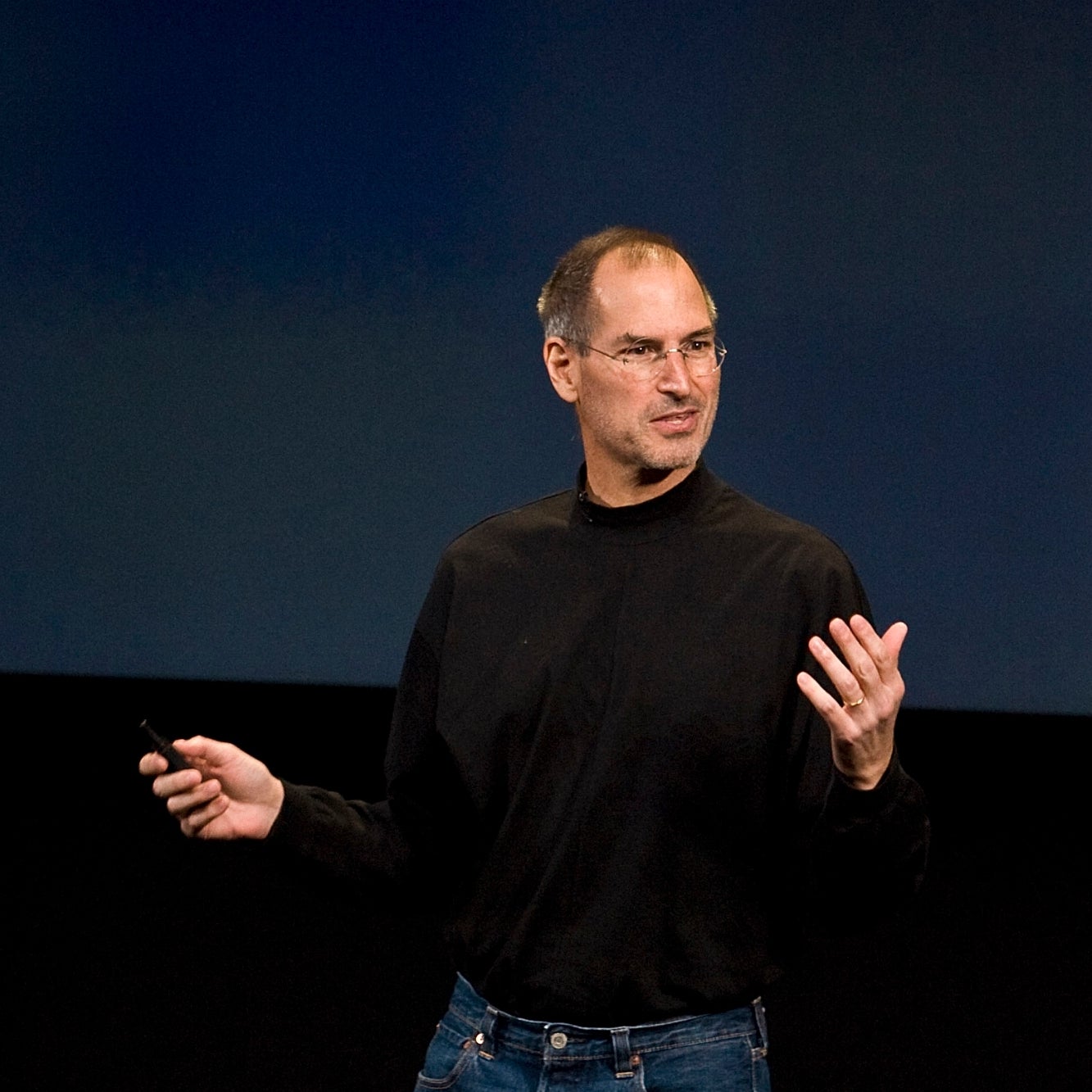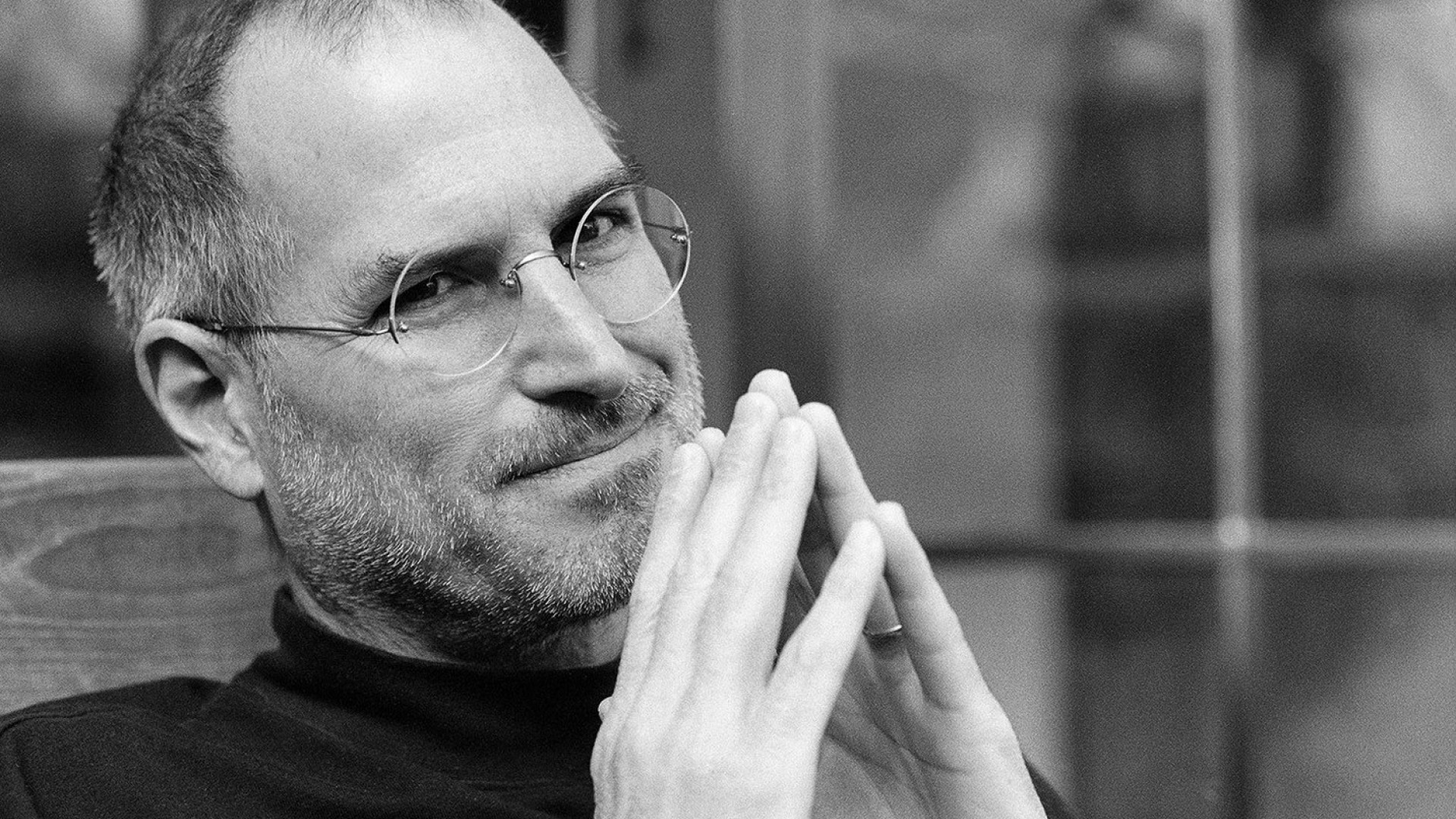Steve Jobs - The Life, Legacy, And Innovative Vision Of A Technology Icon
Steve Jobs was an iconic figure in the world of technology, entrepreneurship, and innovation. He co-founded Apple Inc. and played a significant role in shaping the personal computing industry, transforming it from a niche market to a mainstream phenomenon.
Author:Paolo ReynaReviewer:Iram MartinsApr 03, 202375.6K Shares1M Views

Steve Jobswas an iconic figure in the world of technology, entrepreneurship, and innovation. He co-founded Apple Inc. and played a significant role in shaping the personal computing industry, transforming it from a niche market to a mainstream phenomenon.
Jobs was not only a visionary leader, but also a master marketer and a design enthusiast who focused on creating products that were not only functional but also beautiful.
Quick Facts
| Name | Steve Jobs |
| Date of Birth | 24 February 1955 |
| Gender | Male |
| Net Worth | $250 Million |
Early Life And Education
Steven Paul Jobs was born on February 24, 1955, in San Francisco, California. His biological parents, Joanne Schieble and Abdulfattah Jandali, were unmarried college students who put him up for adoption.
He was adopted by Paul and Clara Jobs, a working-class couple from Mountain View, California. They raised him in a modest home and encouraged his interest in electronics and technology.
Jobs attended Reed College in Portland, Oregon, for one semester but dropped out because he didn't see the value in formal education. He continued to audit classes and explore his interests in calligraphy, literature, and Eastern spirituality. In 1974, he returned to California and took a job as a technician at Atari, a video game company.
Early Career
In 1976, Jobs co-founded Apple Computer Inc. with his friend Steve Wozniak in the Jobs family garage. Their first product was the Apple I, a personal computer that they sold to a local computer store for $500. They went on to create the Apple II, which became the first successful mass-produced personal computer.
In 1980, Apple went public, and Jobs became a millionaire at the age of 25. He became known for his charisma and persuasive powers, as well as his demanding and sometimes tyrannical management style. He was fired from Apple in 1985 after a power struggle with the board of directors.
NeXT Computer And Pixar
After leaving Apple, Jobs founded NeXT Computer Inc., a company that developed high-end workstations for the education and business markets. The NeXT Computer was known for its advanced software and hardware design but was too expensive for most consumers. NeXT struggled financially, and Jobs eventually sold the company to Apple in 1997.
In the meantime, Jobs also acquired the computer graphics division of Lucasfilm Ltd., which he renamed Pixar Animation Studios. Under Jobs' leadership, Pixar produced a series of critically acclaimed and commercially successful animated films, including Toy Story, A Bug's Life, and Finding Nemo. Jobs became the largest shareholder in Pixar and helped take the company public in 1995.
Return To Apple
In 1997, Apple was struggling, and its market share had dwindled. Jobs was asked to return to the company as CEO, and he accepted. He immediately began a series of dramatic changes, including cutting product lines, reducing the workforce, and refocusing on design and innovation.
One of Jobs' first initiatives was to develop a new operating system, which became known as Mac OS X. He also introduced a series of groundbreaking products, including the iMac, the iPod, and the iPhone. The iPod, in particular, was a game-changer, as it revolutionized the music industry and helped Apple become the world's most valuable company.
Personal Life And Legacy
Jobs married Laurene Powell in 1991, and they had three children together. He was known for his minimalist lifestyle and his love of Zen Buddhism. He was also notoriously private and guarded about his personal life.
Jobs was diagnosed with a rare form of pancreatic cancer in 2003. He underwent surgery and treatment but eventually died on October 5, 2011, at the age of 56.
Jobs' legacy is vast and far-reaching. He was a pioneer in personal computing, mobile devices, and digital music, and he transformed the way we work, communicate, and consume media.
He was a master marketer and a design enthusiast who focused on creating products that were not only functional but also beautiful. Jobs' attention to detail and insistence on perfectionism helped elevate Apple's products to the status of cultural icons.
Beyond his contributions to technology, Jobs also had a profound impact on entrepreneurship and leadership. He was known for his charismatic personality, persuasive powers, and demanding management style.
He believed in setting high standards and pushing his team to achieve excellence. Jobs was a master storyteller who was able to inspire his employees, customers, and investors with his vision of the future.
In addition to his work at Apple, Jobs was a philanthropist who supported education, healthcare, and environmental causes. He founded the Steven P. Jobs Foundation, which provides funding for educational programs and scholarships, and he also donated millions of dollars to cancer research.
Apple's Resurgence Under Steve Jobs
A Look at the iMac, iPod, and iPhone - In the late 1990s, Apple was struggling financially and facing increasing competition from Microsoft and other PC manufacturers.
However, when Jobs returned to Apple as CEO in 1997, he was able to turn the company around by refocusing on innovation, design, and simplicity. One of the key products that helped Apple regain its footing was the iMac, a colorful and user-friendly desktop computer that was released in 1998.
Jobs also oversaw the development of the iPod, a revolutionary digital music player that was released in 2001 and quickly became a cultural phenomenon. Later, under Jobs' leadership, Apple developed the iPhone, a touchscreen smartphone that transformed the mobile phone industry and established Apple as one of the most valuable companies in the world.
The Key Principles Of Steve Jobs' Leadership Style
Jobs was known for his demanding management style, which could be both inspiring and difficult for his employees. However, there were several key principles that underpinned his leadership philosophy.
These included his emphasis on excellence, his focus on user experience, his insistence on simplicity, and his attention to detail. Jobs believed that design was not just about aesthetics, but also about making products that were intuitive and easy to use. He also believed in setting high standards and holding his team accountable for meeting them.
Jobs' Impact On The Entertainment Industry
The Rise of Pixar and Digital Animation - Jobs was not just a technology entrepreneur, but also a major player in Hollywood. In 1986, he bought a computer graphics division from Lucasfilm and turned it into Pixar, a company that revolutionized the animation industry.
Pixar's first feature film, Toy Story, was released in 1995 and was a critical and commercial success. Jobs served as executive producer on the film and went on to oversee the development of other hit films like Finding Nemo and The Incredibles. Pixar was eventually acquired by Disney in 2006, making Jobs one of the largest shareholders in the company.
Net Worth
Steve Jobs was an American business entrepreneur and inventor who died in 2011 with a net worth of $10.2 billion. Steve Jobs was best known as the co-founder and CEO of the technological behemoth Apple Inc. Jobs was also the CEO of Pixar Animation Studios, which he helped sell to Disney.
People Also Ask
What Made Steve Jobs Successful?
Steve Jobs was successful for several reasons, including his innovative ideas, his ability to identify and meet consumer needs, his focus on design and user experience, and his demanding management style that pushed his team to achieve high standards.
He was also known for his charismatic personality and his ability to captivate audiences during product launches and other public appearances.
Did Steve Jobs Have Any Failures?
While Steve Jobs is primarily known for his successes, he did experience some notable failures throughout his career. For example, his company NeXT Computer struggled to gain market share, and his foray into the education market with the Apple Newton tablet was also a disappointment.
Additionally, his initial launch of the iPhone was marred by technical glitches and network connectivity issues. However, Jobs was able to learn from these setbacks and turn them into opportunities for growth and improvement.
How Did Steve Jobs Die?
Steve Jobs passed away on October 5, 2011, from complications related to pancreatic cancer. He had been diagnosed with a rare form of the disease in 2003 and underwent surgery to remove a tumor.
Despite his initial recovery, Jobs continued to suffer from health issues related to his pancreas and liver, which eventually led to his untimely death at the age of 56.
Final Words
Steve Jobs' influence continues to be felt in the technology industry and beyond. He was a true visionary who changed the world, and his legacy serves as an inspiration to entrepreneurs and innovators around the globe.
Despite his controversial and at times difficult personality, his contributions to society and technology are undeniable, and his impact will be felt for generations to come.

Paolo Reyna
Author
Paolo Reyna is a writer and storyteller with a wide range of interests. He graduated from New York University with a Bachelor of Arts in Journalism and Media Studies.
Paolo enjoys writing about celebrity culture, gaming, visual arts, and events. He has a keen eye for trends in popular culture and an enthusiasm for exploring new ideas. Paolo's writing aims to inform and entertain while providing fresh perspectives on the topics that interest him most.
In his free time, he loves to travel, watch films, read books, and socialize with friends.

Iram Martins
Reviewer
Iram Martins is a seasoned travel writer and explorer with over a decade of experience in uncovering the world's hidden gems. Holding a Bachelor's degree in Tourism Management from the University of Lisbon, Iram's credentials highlight his authority in the realm of travel.
As an author of numerous travel guides and articles for top travel publications, his writing is celebrated for its vivid descriptions and practical insights.
Iram’s passion for cultural immersion and off-the-beaten-path adventures shines through in his work, captivating readers and inspiring wanderlust.
Outside of his writing pursuits, Iram enjoys learning new languages, reviewing films and TV shows, writing about celebrity lifestyles, and attending cultural festivals.
Latest Articles
Popular Articles
